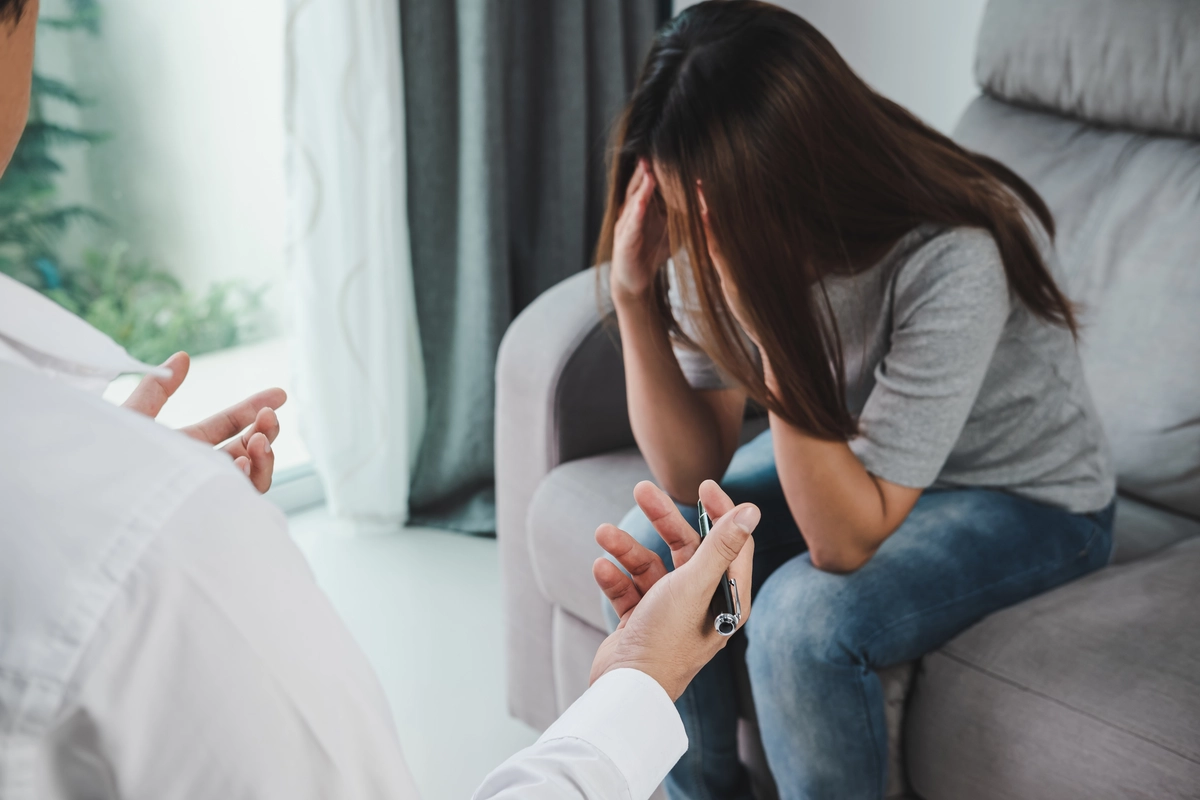24/7 Helpline:
(866) 899-221924/7 Helpline:
(866) 899-2219
Learn more about Opioid Rehab centers in Cole County

Other Insurance Options

Sutter

Evernorth

Regence

Covered California

Ceridian

AllWell

Holman Group

Absolute Total Care

Health Choice

BHS | Behavioral Health Systems

Ambetter

Medical Mutual of Ohio

Humana

Health Partners

Molina Healthcare

Cigna

CareFirst

Optima

Amerigroup

BlueCross

Preferred Family Healthcare – Residential Adult
Preferred Family Healthcare–Adult Residential is an integrative drug and alcohol rehab for adults in...

Preferred Family Healthcare – Residential Adolescent
Preferred Family Healthcare - Residential Adolescent offers a residential and outpatient program, da...

Compass Health Network – Children’s Center
Compass Health Network – Children’s Center is a non-profit rehab located in Jefferson City, Missouri...

Compass Health Network – Jefferson City
Pathways Community Health’s Jefferson City, Missouri office is located at 227 Metro Drive and provid...

Compass Health Network – Christy Drive
Compass Health Network – Christy Drive is a private rehab located in Jefferson City, Missouri. Compa...

Serenity Lane – Coburg Industrial Way
Serenity Lane is an accredited drug and alcohol addiction treatment center in Eugene, Oregon for adu...

Emergence Addictions and Behavioral Therapies
Emergence Addictions and Behavioral Therapies offers free substance abuse treatment to individuals t...

Serenity Lane
Serenity Lane is located in Eugene, Oregon. Serenity Lane is a specialty treatment facility for the ...

Centro Latino Americano
Centro Latino Americano is a private rehab located in Eugene, Oregon. Centro Latino Americano specia...

Emergence – Oak street
Emergence – Oak street is a private rehab located in Eugene, Oregon. Emergence – Oak street speciali...

Looking Glass Community Services – 260 East 11th Avenue
Looking Glass Community Services – 260 East 11th Avenue is a private rehab located in Eugene, Oregon...

Willamette Family – Green Acres Cariton Services
Willamette Family – Green Acres Cariton Services is a non-profit rehab located in Eugene, Oregon. Wi...

Emergence
Emergence is a non-profit rehab located in Eugene, Oregon. Emergence specializes in the treatment of...

Willamette Family
Willamette Family Treatment Services - Rapid Access Center (RAC) and Health Clinic is a non-profit r...

Integrated Health Clinics
Integrated Health Clinics is a drug and alcohol rehab located in Eugene, Oregon. They provide outpat...

Peace Health Behavioral Health Service
Peace Health Behavioral Health Service is a private rehab located in Eugene, Oregon. Peace Health Be...

Lane County Behavioral Health
Lane County Behavioral Health is a public rehab located in Eugene, Oregon. Lane County Behavioral He...

Willamette Family – Buckley Center
Buckley Center is part of the Willamette Family, a collection of rehab centers in Eugene, Oregon. Th...

Looking Glass Community Services – 11th Ave
Looking Glass Community Services – 11th Ave is a private rehab located in Eugene, Oregon. Looking Gl...

Hillside Heights Rehabilitation Center
Hillside Heights Rehabilitation Center is a private rehab located in Eugene, Oregon. Hillside Height...

Willamette Family Treatment Services – Women’s Residential
Willamette Family Treatment Services Women’s Residential is a co-occurring substance use disorder dr...

Teen Challenge – Eugene Women’s Campus
Teen Challenge - Eugene Women’s Campus offers inpatient treatment for men with alcohol and/or substa...











































AA – Alcoholics Anonymous – Primary Purpose
AA – Alcoholics Anonymous – Primary Purpose is a non-profit rehab located in Jefferson City, Missour...

AA – Alcoholics Anonymous – Jefferson Street
AA – Alcoholics Anonymous – Jefferson Street is a non-profit rehab located in Jefferson City, Missou...

Transitional Residential Facility
Transitional Residential Facility is a private rehab located in Jefferson City, Missouri. Transition...

Pathways Community Health – West Truman Boulevard
Pathways Community Health - West Truman Boulevard provides mental health counseling and psychiatry s...

El Puente
El Puente is a private rehab located in Jefferson City, Missouri. El Puente specializes in the treat...

Lane County Behavioral Health – Methadone Treatment
Lane County Behavioral Health – Methadone Treatment is a public rehab located in Eugene, Oregon. Lan...

Behavioral Health Recovery and Reintegration
Behavioral Health Recovery and Reintegration is a public rehab located in Eugene, Oregon. Behavioral...

Center for Family Development – Central Annex Building
Center for Family Development is a private rehab located in Eugene, OR. Center for Family Developmen...

Directions Service Counseling Center
Directions Service Counseling Center is a private rehab located in Eugene, Oregon. Directions Servic...

New Day Treatment Services
New Day Treatment Services is a private rehab located in Eugene, Oregon. New Day Treatment Services ...

Regional Rehabilitation
Regional Rehabilitation is a private rehab located in Eugene, Oregon. Regional Rehabilitation specia...

Interventions NorthWest
Interventions NorthWest is a private rehab located in Eugene, Oregon. Interventions NorthWest specia...































































